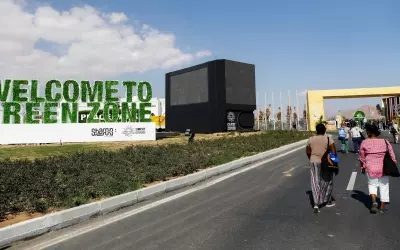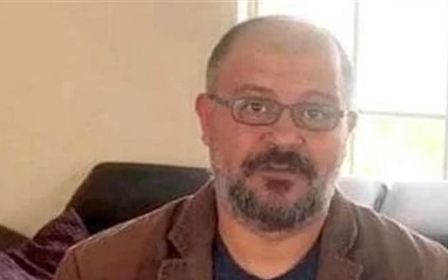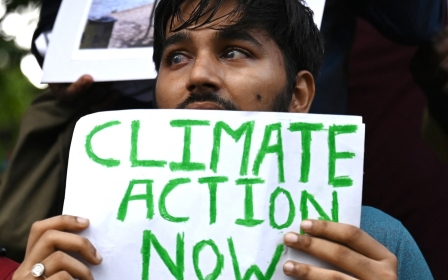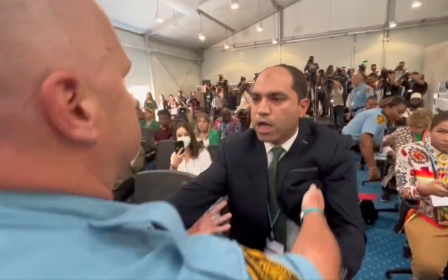Cop27: Climate activists slam hostile and 'impossible' environment in Egypt
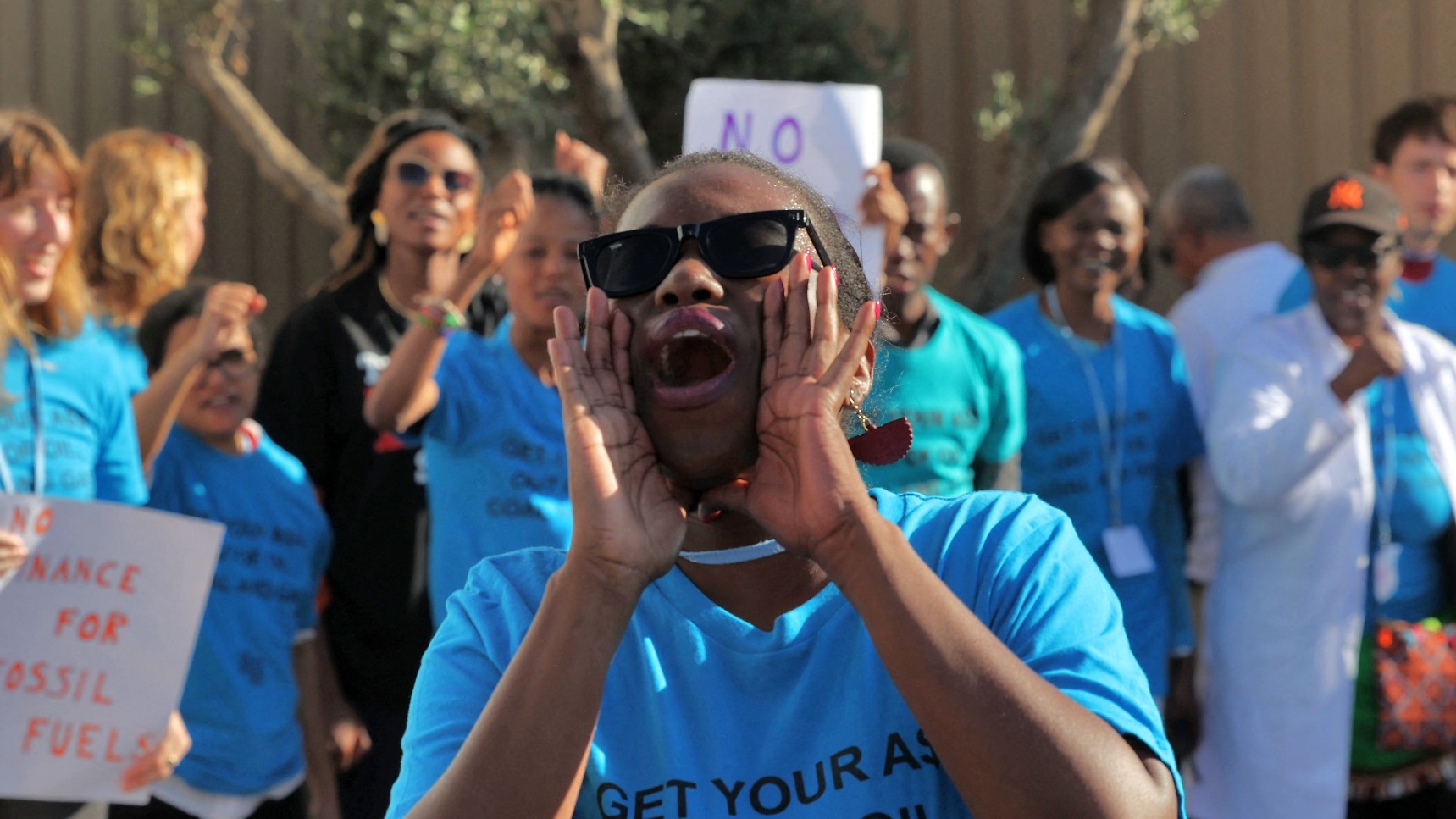
Climate conferences are usually inclusive forums that bring together world leaders, NGOs, activists and civil society groups. But advocates have told Middle East Eye there is little space for any serious activism at this year's UN Climate Change Conference in Egypt, also known as Cop27.
A culture of fear, intimidation, and arrests has not only stifled the work of grassroots activism in Egypt over the past decade, but it has also ensured there will be limited mobilisation efforts amongst civil society groups at the conference itself.
"This year's Cop is very different from previous Cops, especially since there is a lack of engagement from Egyptian civil society and a complete shutdown of all outside engagement and protest at Cop," Sharif Zakout, a community organiser with the Arab Resource & Organizing Center (Aroc), told MEE.
"I participated in Cop26 and can see the stark difference between the role of civil society at last year's conference compared to this year," said Zakout, who is currently representing Aroc as part of the Grassroots Global Justice Alliance and It Takes Roots delegation at Cop27 in Sharm-el-Sheikh.
Over the past week, Egypt's human rights record has made international headlines, with activists and scholars using the event to highlight how President Abdel Fattah el-Sisi's government arbitrarily arrests and tortures dissidents and academics.
Since Sisi came to power in a 2013 military coup, his government has run roughshod over basic components of governance, with civil-society organisations crippled by draconian laws prohibiting NGOs from engaging in public affairs.
"Cop27 attendees and those following outside Egypt will not hear of Sisi’s environmental and social injustices because Egypt’s General Intelligence Service controls large parts of the country’s news media, film, and television outlets," said a group of anonymous Egyptian journalists and academics, known as the "Egypt unsilenced collective".
A spokesperson for the climate conference disputed assertions that this year's conference - which the UN manages in full - hasn't been as vibrant and open to civil society.
"The United Nations Framework Convention on Climate Change (UNFCCC) secretariat will maintain the same high standard in the facilitation of conference registration and NGO demonstrations at the Cop venue as in any past sessions," the spokesperson said.
"In regards [to] the demonstrations at the venue, the secretariat works with any and all observer organisations regardless of their views, in order to facilitate their demonstrations on site in accordance with the established procedure, which respects the UN safety and security guidelines and the code of conduct," the spokesperson said.
No room for resistance
But activists say the issue is not a question of protesting at the venue under UN protection. It's a question of what remains when the UN leaves.
At a side event on Tuesday at the conference, "Climate justice and human rights at Cop27 and beyond", noted Egyptian rights activist Hossam Bahgat said Egypt's human rights crackdown had made it impossible to lobby, investigate or protest government policy in the country.
Even local communities impacted by egregious "development projects" have declined to mobilise due to fear of the state, he said.
"Egypt was never a liberal democracy. Egypt has always had a problematic human rights record, with areas of concern, some systemic. But we had a fighting chance.
"We had the room for resistance. We had the ability to engage in strategic litigation; to access members of parliament to lobby; to spread and disseminate our information through independent media; to organise at the community level; to give direct support to [the] most at risk, most affected, most vulnerable communities. None of this is available right now," Bahgat, executive director of Egyptian Initiative for Personal Rights (EIPR), said.
On 6 November, Amnesty International said the Egyptian government had arrested "hundreds of people" on the suspicion of calling for protests during the conference.
"The arrest of hundreds of people merely because they were suspected of supporting the call for peaceful protests raises serious concerns over how the authorities will respond to people wishing to protest during Cop27 - an essential feature of any UN climate conference," Philip Luther, Amnesty International's Middle East and North Africa research and advocacy director, said in a statement.
"World leaders arriving in Sharm el-Sheikh for Cop27 must not be fooled by Egypt's PR campaign. Away from the dazzling resort hotels, thousands of individuals including human rights defenders, journalists, peaceful protesters, and members of the political opposition continue to be detained unjustly," Luther added.
On Tuesday, several activists expressed concerns over the level of surveillance in and around the resort town of Sharm el-Sheikh, noting that their movements were being monitored.
"Everything is being recorded and monitored, and connected to an interior ministry that we know are involved in crimes against humanity, Amr Magdi, a human rights researcher, told MEE.
MEE reached out to the Egyptian consulate in New York for comment but did not receive a response by the time of publication.
Middle East Eye delivers independent and unrivalled coverage and analysis of the Middle East, North Africa and beyond. To learn more about republishing this content and the associated fees, please fill out this form. More about MEE can be found here.


